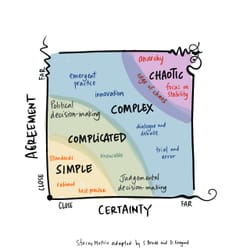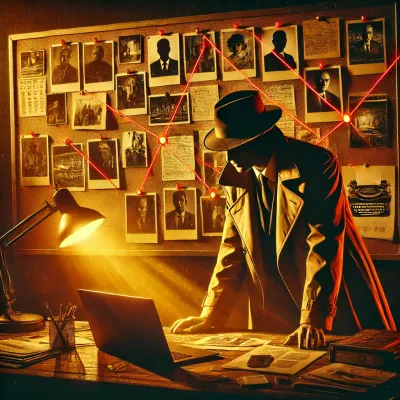So, you finally made it to Senior Developer? Nice. 🎉 Now, let’s talk about what that actually means – because it’s not just about writing more code all day.
Nobody really prepares you for this, but being a senior dev is less about writing all the code and more about influence, problem-solving, and leadership. I mean, not in a "dictatorship" way, but from experience and expertise point of view. Here are five things I learned along way – and you probably will too.
Congratulations, You’re Now the Adult in the Room
That junior dev struggling with the codebase? That Jira task with no requirements? Flow does not make sense? That time when people are too polite to say, "This is a terrible idea"? Yeah, that’s on you now.
As a senior, your job isn’t just delivering code. It’s making sure the team doesn’t drive off a cliff. That means raising concerns, pushing back when needed, and sometimes being the one to bring bad (or good!) news up the chain.
If you see disaster coming, don’t just watch – say something.
Writing Code Isn’t the Most Important Thing You Do
You probably got here because you were a great coder. But now? Your job isn’t just to write code – it’s to make sure the right code gets written.
Most of your time will go into reviewing, refactoring, and stopping bad code from making it to production. Some days, your biggest achievement won’t be writing a brilliant feature – it’ll be preventing someone from turning a simple task into an over-engineered spaghetti.
And when deadlines are tight? You’ll have to know where to cut corners without setting the team up for disaster later. Being senior isn’t about perfection – it’s about knowing what actually matters and making smart trade-offs.
Do As I Do – Unless I’m Tired, Then Don’t
You can’t expect the team to care about best practices, testing, documentation, or maintainability if you don’t.
- If you cut corners, the team will too.
- If you ignore processes, people will follow your lead.
- If you complain about problems but don’t act – nothing changes.
Want a strong team? Be the standard. Document things properly, review PRs thoroughly, encourage good habits. If you show that you care, others will too (hopefully).
You’ll Be "The Guy" (Even When You Don't Want To Be)
CI/CD pipeline broken? You might have to fix it. Need a new database schema? Guess who’s designing it. A greenfield microservice with vague requirements? That’s your problem now.
Oh, and sometimes you’ll have to jump into insert_tech_name_here even if you hate it. Or translate business requirements that barely make sense into something actionable. Because that’s what being senior means: stepping up and doing what needs to be done – even if you didn’t sign up for it.
There’s no more saying, “That’s not my job”. It is your job. Your job is whatever needs to be done, and you’ll be good at it (well, most of the time).
You Wanted a Promotion, Not a Personality Split
At this level, you don’t just write code – you think beyond it. Your day will include multiple role "cosplaying":
- Developer – Still coding, but focusing on the critical parts.
- Architect – Making high-level design decisions.
- Analyst – Figuring out business requirements before they turn into tech debt.
- Mentor – Helping juniors and guiding the team.
- Wildcard – Because, surprise! You’ll sometimes have to do things that aren’t even remotely related to your exact job description.
The higher you go in ranks, the more your soft skills start to matter. Communicating trade-offs, managing expectations, understanding business needs – these are just as important as writing efficient code.
TL;DR: Senior ≠ Just More Code
Being a senior dev isn’t about shipping features faster. It’s about:
✅ Stepping up when things go sideways.
✅ Making good decisions (and helping others do the same).
✅ Taking ownership beyond just your assigned tasks.
✅ Knowing when to push for quality and when to ship fast.
At least, that’s been my experience. Yours might be different, but I’d bet most senior devs will relate.






